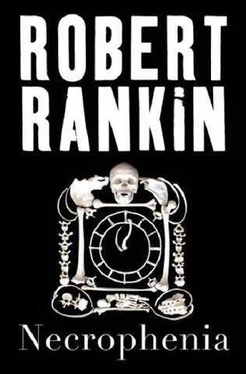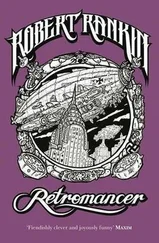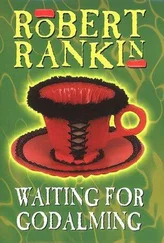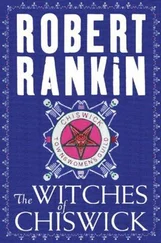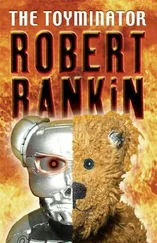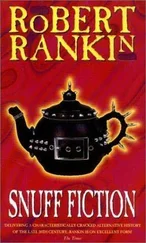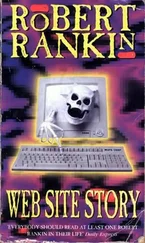‘My father told me this story,’ I said to Fangio. ‘He told me that as a child he’d been taken to see Billy Balloon’s Punch and Judy show. And later, when Billy died, my granddaddy told him the story. But he didn’t know the truth. Do you?’
‘He was dead,’ said Fangio. ‘He died at the Somme. But his comrades didn’t know that he had died. They thought he had been terribly wounded, but had survived his injuries.’
‘But he was dead? Was it a dead man that my father saw perform the Punch and Judy show?’
‘A dead man,’ said Fangio. ‘By force of will, by utter determination, he refused to let go of his physical body. He clung on to it. He urged it back into animation. But he had no arms. And he could not speak.’
‘So how did he work the puppets? And do the voices?’
‘He didn’t. Not physically, anyway. He didn’t touch the puppets. Those puppets climbed up onto the little stage of the Punch and Judy show tent booth and performed and spoke by themselves.’
‘He brought the puppets to life?’
‘He was undead. His soul had left his body back in the Somme. What remained was the force of his will. Witches have their familiars, animals with the souls of demons that do the witches’ bidding. In the same way, he had his puppets. He conjured into those puppets the souls of departed comrades. How many millions died in the First World War? How many lost souls wandered those battlefields?’
I felt little shivers run through me. This was sinister stuff.
‘Oh,’ said Fangio. ‘A customer. And my first, other than yourself, in twenty years. Please pardon me while I serve him.’
And off he went to do that very thing.
And I did some thinking on what he had said. It was that thing about souls again. That thing upon which the creation of the Homunculus was based. The Punch and Judy man had somehow cheated Death, in that although he had died and his soul had left his body, the being that was him had somehow remained there, by sheer force of will. And this will-being had reanimated his own body. A dead body. But what about those Punch and Judy puppets? The souls of fellow soldiers animating the bodies of puppets? That sounded rather horrid. But then perhaps it was better than being in your own rotting corpse lying unrecovered on some foreign battlefield, awaiting your call to salvation or otherwise. As an option, perhaps it wasn’t too bad a one. Although how had Billy Balloon managed to achieve it?
‘He was outside this world,’ said Fangio, as if reading my thoughts. ‘Sorry if I startled you there, but you were probably going to ask me how Billy Balloon managed to instill the souls of his war buddies into puppets. Yes?’
‘Yes,’ I said. ‘So how did he do it?’
‘He was outside this world. The world that we understand. The world of the living. That is the only world that we, the living, understand, insofar as we do understand it. But it’s all that we know anything about. Beyond that? The Great Mystery. Our rules no longer apply. What the dead are capable of, we the living do not know. What really goes on in Heaven or Hell we only can speculate on.’
‘This is rather deep stuff for you,’ I said to Fangio.
‘Sir,’ said Fangio, ‘I am a barlord. We can do deep and we can do shallow. We do what we are called upon to do. That is our skill. That is our gift. That is why we became barmen.’
‘Good grief,’ I said. ‘Then it is a vocation? Like joining the priesthood?’
‘Precisely. Though somewhat deeper and more mystical than being in the priesthood.’
‘I will never look at you in the same light again,’ I said.
‘It would be oh-so-simple to stick in a little bit of shallow here,’ said Fangio, ‘but I will resist the temptation and carry on with the deep stuff.’
And that was what he did.
‘So,’ he continued, ‘a dead man walking and orchestrating the movements of puppets imbued with the souls of his dead companions. He achieved his goal. He wanted to make his family proud of him, maintain the family traditions. And he did. And when he had done so, he gave up the ghost, if you like. He let his long-dead body finally find peace in the ground.’
‘It’s a sad story,’ I said. ‘But uplifting, in a curious manner.’
‘Quite so. But what comes later is not quite so uplifting. We have the Second World War. Which, I am assured, was not just fought with conventional weapons, but also with magic. A great battle of Good against Evil. And this led to the creation of the Homunculus. Do you know what that is?’
‘Actually I do,’ I said. ‘I know all about the Homunculus.’
‘There is much rumour,’ said Fangio. ‘Some even claim that he is the brother of Elvis, who was one of six children, the magical sons of the English magician Aleister Crowley.’
‘And how do you feel about this idea?’ I asked Fangio. As it now appeared certain that Fangio had no recollection of the conversation that he had overhead two decades before, in this very bar, between myself and Elvis Presley.
‘I poo-poo this idea,’ said the barlord. ‘How about you?’
‘If you poo-poo it, that is good enough for me,’ I said. Because I did want to learn more. ‘Please continue with your most interesting narrative.’
‘The Homunculus,’ said Fangio. ‘As with the reanimated corpse of Billy Balloon, the Homunculus is outside of our world. He exists in a manner that we do not understand. Cannot understand. His motives are inexplicable to us, as inexplicable as our motives must be to him.’
I gave this some thought. Some very hard thought. And Fangio continued.
‘Where he goes, Death follows. Death. For he is an aspect of Death. He would destroy all life. All of us. We cannot understand why because we cannot understand him. But death is what he wills upon us.’
‘Death,’ I said. And slowly.
‘Death,’ said Fangio. ‘And so, this much I understand, and others all over the world understand – a secret department here in the States, a secret ministry over in England. We understand that the Homunculus is raising an army of the dead. Here. All over the world. A growing army. This has been going on since the nineteen-fifties, when he escaped from the custody of those who controlled his actions.’
I did some more hard thinking.
Fangio clearly had part of the story. And I had part of the story. And all over the world other concerned parties had other parts of the story. It was a very big story. And it came in many parts.
‘An army of the dead,’ I said to Fangio. ‘Why?’
‘To do what armies do, of course. This is all about war, isn’t it? Everything is ultimately about war. The war between Good and Evil. This war becomes the war between the dead and the living. When the reanimated dead are of sufficient number, when they outnumber the living, then they will rise. The war will be swift, the outcome inevitable.’
‘That is horrible,’ I said to Fange. ‘That is absolutely horrible.’
‘It is no laughing matter,’ said the barlord.
‘And when the dead have won and there are no more living, what then?’
‘What indeed?’ said Fangio. ‘I have told you. We, the living, cannot understand the motives of the Homunculus. He is beyond our worldliness, beyond our comprehension.’
‘That is a cop-out,’ I said to Fange. ‘You must have some theory.’
‘I have many,’ said the barlord, ‘but they are only theories, nothing more. I do not understand the motives of the Homunculus. But I and other concerned parties have no wish to understand them. All we want is for him to be destroyed, before all of the Earth and every living thing on it are destroyed.’
And off went Fange to serve another customer. Leaving me all alone.
‘Well,’ I said. To nobody but myself. ‘All this makes a lot of sense. I wonder if, perhaps, I should pass on to Fangio and to his concerned parties the fact that I know the identity of the Homunculus.’
Читать дальше
